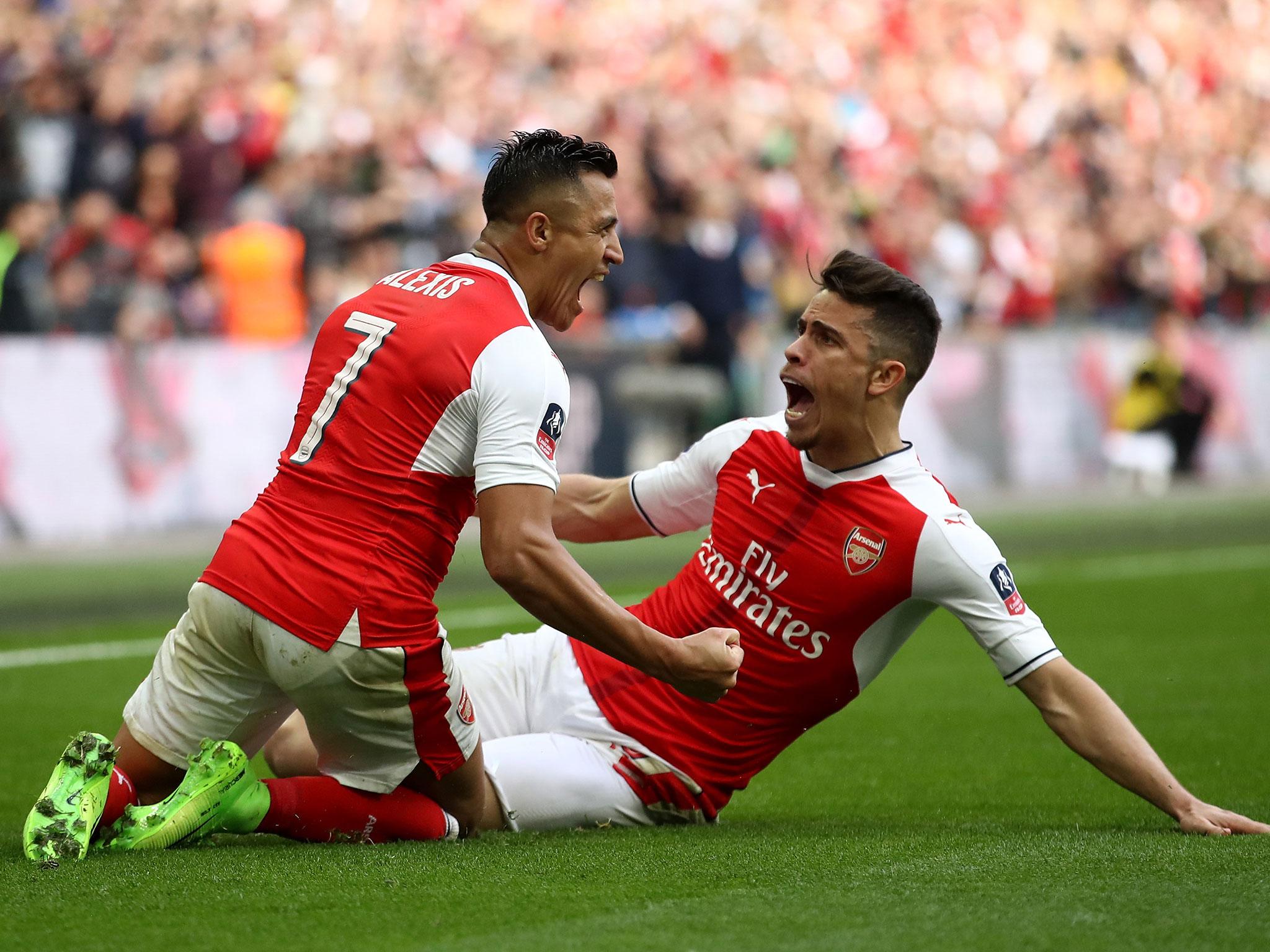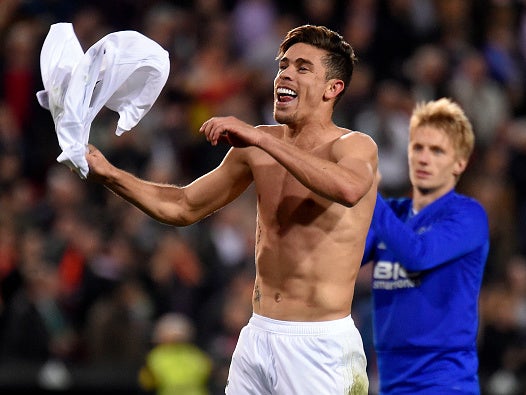Gabriel Paulista interview: 'I have nothing to prove to Arsenal anymore, I'm ready to defend Valencia's badge'
Exclusive: 'In the Premier League, I tried to prove my worth but I didn’t get the opportunities'
Gabriel Paulista reclines ever so slightly in his chair, casually stretching a leg across the intersect of sun and shade cast by the roof of Valencia‘s training ground as he reflects on a blurred two years at Arsenal.
Paterna is eerily quiet, interrupted only by the whistle of a sea breeze and stray mutterings as members of the coaching staff wander by. Paulista flashes a smile in their direction, toothy grin cracking the boundaries of a granite, bony jawline as he subconsciously taps his flip-flops against the floor, scrunching his toes into the grass. He falls silent for a moment. “I arrived here almost two years ago now,” he says. “I can’t remember having an unhappy moment since…. Not one.”
There is a lingering meld of frustration and disappointment as Paulista ponders what held him back in north London. The sense that he wasn’t trusted; the lack of playing time compounded by the language barrier, a wearying difficulty to articulate himself that translated onto the pitch. They are forgotten torments now, ones he’s cautious and reluctant to relive in his first interview with the English press in over a year.
“With all respect to Arsenal, I have nothing to prove to them anymore,” he says, more resolutely now. “In the Premier League, I tried to prove my worth but I didn’t get the chances. When I played, it was often because of an injury to my teammates. I deserved more opportunities. I was sad because I knew I had the ability to play… But other people didn’t think so. I’ve proven myself here and now I just want to keep showing what I can do for Valencia.”
A fiery ball-playing centre-back raised playing the type of Brazilian street football now so idolised by English teenagers, Paulista was exactly the type of player Arsenal had yearned for as Per Mertesacker’s legs turned treacle and Laurent Koscienly’s knees wore away. But a turbulent start to his first full season at the club was marked by naively lashing out in blind rage at Diego Costa.
The ending, just 64 games later, would be equally as cruel, missing the redemptive FA Cup final victory over Chelsea in 2017 after being stretchered off the pitch in tears just days before. Paulista’s “Premier League dream” ultimately became an uncomfortable interlude between highlights in Spain, lost to the tides of an era’s end.
“I arrived during Arsene Wenger’s last years and you could feel something different in the locker room straight away,” he says.
“He helped me a lot to be another kind of person on and off the pitch. He was respected by all the players and staff, but the atmosphere was so noticeable. On a daily basis, you could tell these were his last moments at the club. It showed. We knew he could go at any time.”
Yet it was Paulista who would go first. When Valencia bid £11.3m in the summer of 2017, the door was opened but the decision didn’t come naturally. He describes himself as a “fighter”. The mentality forged in a favela on the outskirts of Sao Paolo where his mother was raised, where he remembers witnessing robberies and death as a young child. A background he takes immense pride in overcoming and spurred him to persevere through failed trials at Gremio and Santos as an 18-year-old.

“I’m a hard working guy,” he says. “I always wanted to work, to fight and demonstrate what I could do. I changed my mind [about the decision to leave] one day to the other. When you’re at a club like Arsenal, all the history, the city, the stadium, leaving is very hard. But I did the best I could do.”
Paulista spoke to his family and then to Valencia’s coach Marcelino, who he’d already formed a close bond with at Villareal, and eventually one morning he woke up and followed his heart. That the two years since have passed by so much quicker than those in London is a testament to his choice.

The 28-year-old’s passion immediately endeared himself to the club’s supporters. An overzealous, near possessed defender who has no qualms saying that he’s ready to die to “defend Valencia’s badge”.
“I’m not the type of player who is affected too much by being talked about,” he says combatively. ”I didn’t listen to people who criticised me in England, but I don’t think anybody expected me to do the job I’m doing [at Valencia].
“There’s much more pressure here and I want to improve so much more,” he continues, eyes narrowing momentarily as he pulls his leg back from the shade. “I want to be the best every day. That is what I work for.

“Obviously, I’ve played a lot better here [than at Arsenal]. I could not be happier. The boss, the fans, the people at the club are happy with me. I want to be the best and I want to stay here for many more years.”
The murmur of his teammates eating and occasional bursts of laughter drift from the canteen. The trip to the Emirates has already begun to stir a fever amongst Valencia’s squad. The early afternoon sun beats down on a relentlessly hot day and as Paulista prepares to return home, a small gaggle of parents and troupe of young children congregate by the Brazilian’s car, pens and miniature shirts at the ready. “To return to Arsenal will be special,” he says of his second act. “It will be a beautiful day.”
Join our commenting forum
Join thought-provoking conversations, follow other Independent readers and see their replies
Comments
Bookmark popover
Removed from bookmarks